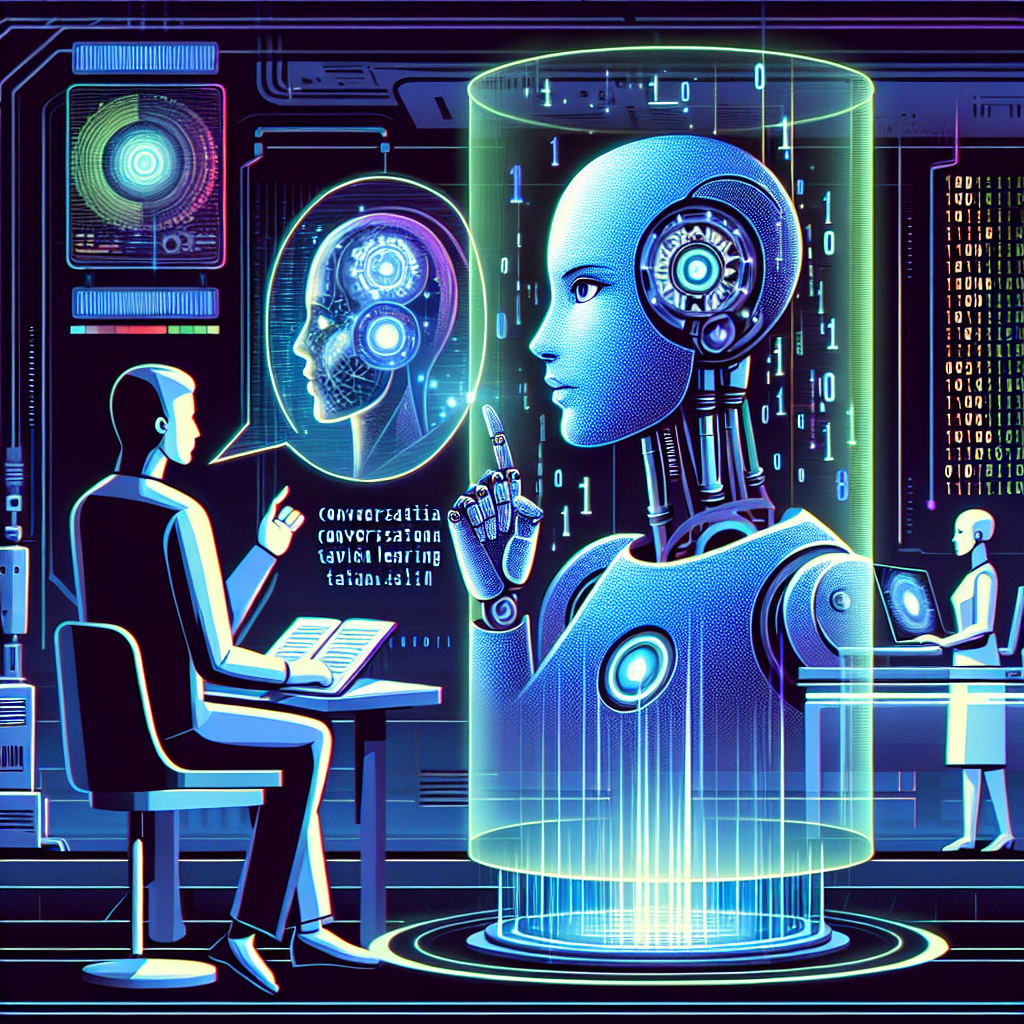The Future of Conversational AI: Advancements in Machine Learning
Conversational AI, also known as chatbots or virtual assistants, is a rapidly evolving technology that has the potential to revolutionize the way we interact with computers and machines. By using natural language processing (NLP) and machine learning algorithms, conversational AI systems can understand and respond to human language in a way that feels natural and intuitive.
In recent years, there have been significant advancements in machine learning techniques that have improved the capabilities of conversational AI systems. These advancements have made it possible for chatbots to handle more complex conversations, provide more accurate responses, and even simulate human-like behavior.
One of the key advancements in machine learning that has fueled the progress of conversational AI is the development of deep learning algorithms. Deep learning is a subset of machine learning that uses neural networks with multiple layers to learn complex patterns from data. This allows chatbots to better understand the nuances of human language and generate more contextually relevant responses.
Another important advancement in machine learning that has improved the performance of conversational AI systems is the use of reinforcement learning. Reinforcement learning is a type of machine learning that uses a reward-based system to train algorithms to make better decisions over time. By using reinforcement learning, chatbots can learn from their interactions with users and improve their responses based on feedback.
In addition to these advancements in machine learning, there have also been significant improvements in the underlying infrastructure and technologies that support conversational AI systems. For example, cloud computing platforms have made it easier and more cost-effective to deploy and scale chatbots, while advancements in natural language processing have made it possible for chatbots to understand and generate text in multiple languages.
Overall, these advancements in machine learning and technology have made conversational AI systems more powerful, versatile, and user-friendly than ever before. As a result, chatbots are now being used in a wide range of industries and applications, from customer service and marketing to healthcare and education.
FAQs
Q: What are the benefits of conversational AI?
A: Conversational AI offers a number of benefits, including improved customer service, increased efficiency, and enhanced user experience. Chatbots can handle a large volume of inquiries and provide instant responses, freeing up human agents to focus on more complex tasks. Additionally, chatbots can be available 24/7, allowing businesses to provide round-the-clock support to their customers.
Q: How does conversational AI work?
A: Conversational AI systems use natural language processing (NLP) and machine learning algorithms to understand and respond to human language. When a user interacts with a chatbot, the system analyzes the input, processes it using NLP techniques, and generates a response based on pre-defined rules or machine learning models.
Q: What industries are using conversational AI?
A: Conversational AI is being used in a wide range of industries, including customer service, healthcare, finance, education, and retail. Chatbots are being used to automate repetitive tasks, provide personalized recommendations, and improve the overall user experience in these industries.
Q: What are the challenges of conversational AI?
A: One of the main challenges of conversational AI is ensuring that chatbots can understand and respond to human language accurately and effectively. This requires a combination of advanced machine learning algorithms, robust training data, and ongoing monitoring and optimization. Additionally, chatbots must be designed in a way that respects user privacy and security.
Q: What is the future of conversational AI?
A: The future of conversational AI is bright, with continued advancements in machine learning and technology expected to further improve the capabilities of chatbots. We can expect to see chatbots becoming even more intelligent, personalized, and human-like in their interactions, leading to increased adoption and integration in various industries and applications.

